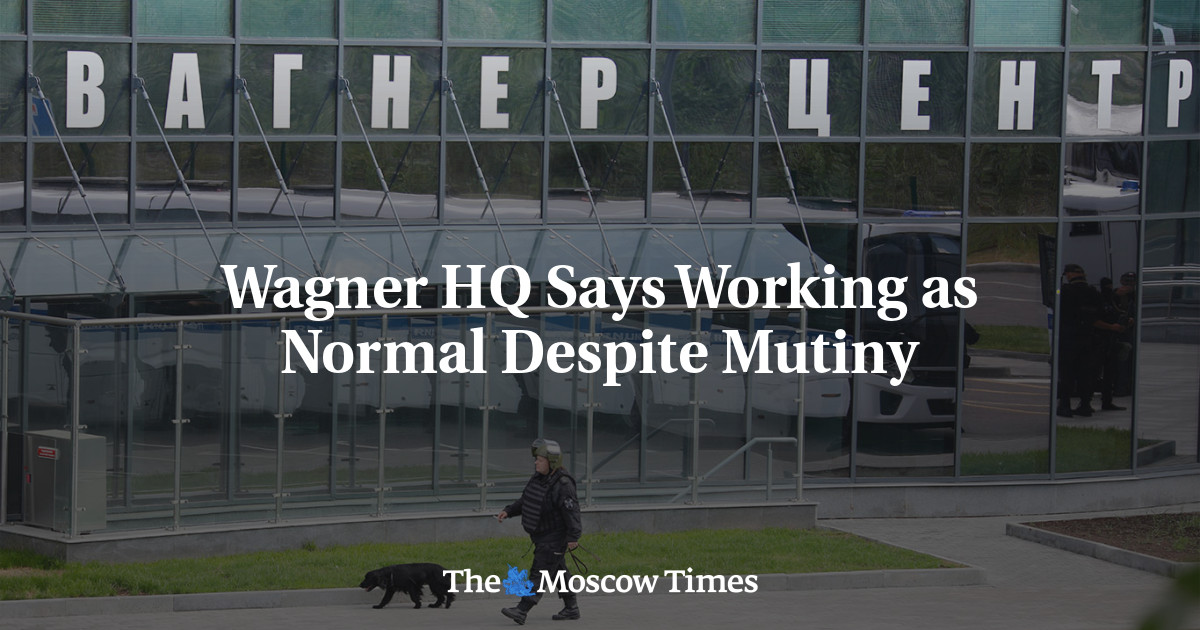
The headquarters of Russia’s Wagner mercenary group, whose leader Yevgeny Prigozhin led a mutiny over the weekend that rattled President Vladimir Putin’s rule, said Monday it was working in “normal mode.”
The statement from the office came as the fate of Wagner was uncertain after the rebellion and as Russia appeared to take a business-as-usual approach.
“Despite events that have taken place, the center continues to work in normal mode in accordance to the law of the Russian Federation,” the office, based in Russia’s second city of St. Petersburg, said.
It said Wagner has “worked for the future of Russia” and thanked its supporters.
Wagner’s chief Prigozhin has not been seen since Saturday, but the Kremlin said he will be sent to neighboring Belarus after a Minsk-brokered deal to halt his rebellion.
Wagner, whose very existence Moscow denied until its Ukraine offensive, said it had “created opportunities for the (self) realization of talented people from all over the country.”
It said that on top of developing “domestic drones,” it had also worked on “preparing information fighters and countering the information war.”
Prigozhin is known to have led an infamous troll farm in St. Petersburg.
Despite Putin calling the Wagner mutiny “treason” and warning of civil war, some of the group’s offices around Russia were still recruiting fighters, Russian media reported.
The TASS state news agency said Wagner recruitment reopened in Siberia’s Novosibirsk and Tyumen.
“Recruitment is ongoing,” TASS quoted a Wagner worker in Novosibirsk as saying.
In the State Duma — Russia’s lower house of parliament — however, lawmakers said the group could no longer recruit convicts.
Prigozhin had recruited thousands of Russian prisoners to fight in Ukraine, promising an amnesty upon their return if they survive.
“There was a time when (Wagner) could take those who were convicted and sign a contract with them,” senior lawmaker Pavel Krasheninnikov said, according to the Interfax news agency.
“Now the law says there is a different procedure, under which contracts can only be signed with the Defense Ministry.”